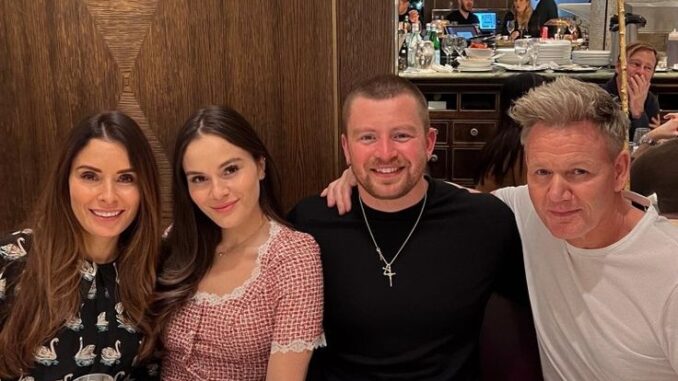
Gordon Ramsay is no stranger to reinvention. From screaming matches in “Hell’s Kitchen” to heartwarming mentorship on “MasterChef Junior,” the culinary juggernaut has carved out an undeniable presence across the TV landscape. But with the launch of his new show, some longtime fans and casual viewers are left wondering: are we watching a fresh concept — or just a reheated serving of Gordon’s previous work?
Ramsay’s latest series, while boasting sleek production and the usual high-stakes kitchen drama, bears an uncanny resemblance to his earlier programs. The format, the challenges, even the catchphrases feel all too familiar. And while the man’s charisma remains magnetic, the show’s premise seems like a remix of what we’ve already seen — sometimes almost beat for beat.
At first glance, the structure of the show mimics “Hell’s Kitchen.” Contestants endure grueling cooking challenges, receive blunt critiques, and face elimination in high-tension ceremonies. But rather than a fresh take, the show recycles many of the same segments and tropes. A signature dish challenge? Check. A team-based relay in the kitchen? Check. Gordon’s disappointed face as he spits out a dish? Triple check.
While competition shows thrive on a familiar structure, what made Gordon’s older series stand out were their innovative spins. “Kitchen Nightmares,” for instance, combined reality TV chaos with redemption arcs. “MasterChef” placed amateurs in the spotlight. This time, we’re simply reliving moments from earlier seasons in new packaging.
Let’s be honest — people don’t just watch Gordon Ramsay shows for the food. They tune in for the attitude. The brutal honesty. The shouting. The rare glimpses of tenderness. But after decades of watching him call dishes “an insult to Italy” or lament the state of a risotto, the shtick, as powerful as it once was, begins to feel worn.
In his new show, Ramsay rarely steps out of this well-worn persona. When he berates a contestant for undercooked chicken or mistakes in plating, it feels more like performance art than genuine critique. The spontaneity that once defined him has been replaced by predictability — we know what he’ll say before he says it.

One of the most frustrating aspects of this new show is how it misses the chance to showcase Gordon Ramsay’s evolution. Off-screen, Ramsay has grown remarkably — he’s a father of six, a successful restaurateur with global reach, and someone who’s shown moments of vulnerability in interviews and social media.
Imagine if this show reflected that side of him. Imagine a Gordon Ramsay who’s still demanding but more introspective, who helps chefs not just survive his kitchen but thrive in the real world. Instead, the series leans into caricature, offering more of the same instead of letting Ramsay (and his audience) grow.
In 2025, the culinary world is different than it was in 2004 when “Hell’s Kitchen” first aired. Social media, sustainability, diverse cuisines, and mental health awareness have all reshaped the industry. And yet, Ramsay’s new show feels frozen in time.
There’s little acknowledgment of how restaurants today face unique post-pandemic challenges or how younger chefs are more collaborative and tech-savvy than ever. While his older shows were once pioneering, this one feels like it’s playing catch-up — and not doing a great job of it. Clearly, viewers still admire Ramsay. But admiration doesn’t automatically translate into engagement if the content feels repetitive.
To be fair, Gordon Ramsay has always been a master of media adaptation. He’s thrived on American and British TV, adapted formats for global audiences, and stayed relevant for over two decades — a feat not many chefs can claim. So while this current series might not hit the mark creatively, it doesn’t mean he’s out of the game.
In fact, this show might serve as a wake-up call. Ramsay has the platform, experience, and resources to reinvent cooking television once more. He could focus on deeper storytelling, highlight underrepresented culinary voices, or even do a behind-the-scenes docuseries exploring the business side of running a restaurant empire.
